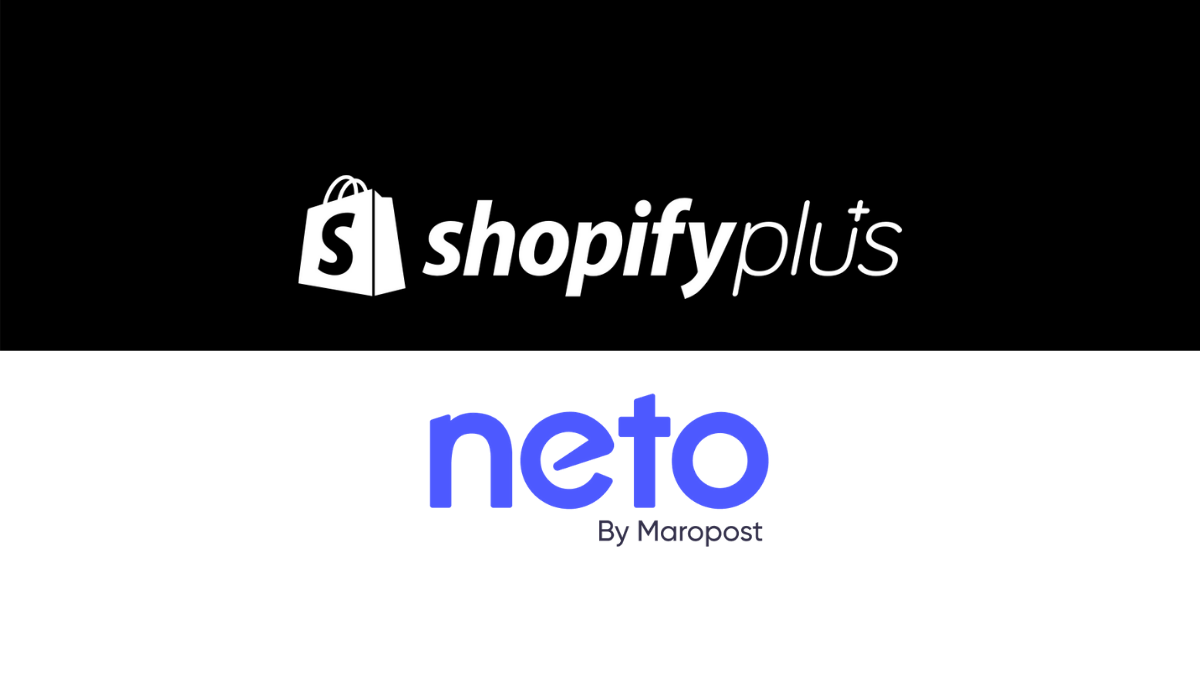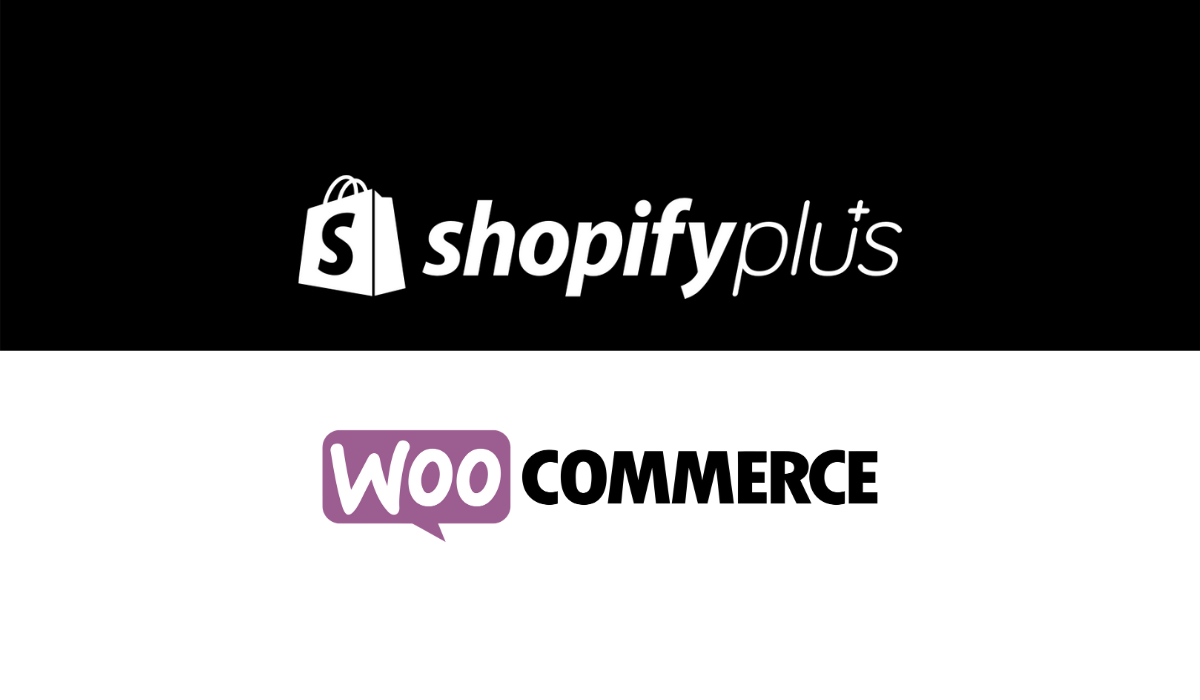Shopify Plus vs Neto: Which e-Commerce Platform is Better?
Shopify Plus is a leading ecommerce platform that has been designed specifically to cater to enterprise-level, high volume brands. It is currently used by some of the largest international companies in the world and with good reason. It integrates with over 70 different payment gateways, is available in all major languages, has built-in SEO features and mobile optimisation, and (perhaps most importantly) can handle serious online traffic.
There’s also plenty of room to manoeuvre when it comes to online store customisation, and with a slew of automation capabilities, it is perfect for large ecommerce retailers that want to cut down on hours of repetitive tasks. In addition to this, Shopify Plus is designed to allow for seamless social selling in crucial areas like Facebook Messenger, Instagram and Twitter.
Neto, on the other hand, is an Australian platform offering good mobile functionality, some useful add-ons and the ability to integrate third-party scripts, although few are available at present. It is useful for burgeoning businesses and certainly weighs in with a slightly smaller price tag in comparison to Shopify Plus.
In this article, we’re going to compare the two platforms to offer some pointers on which is the best ecommerce solution based on the requirements of your business. Click on one of the links below to jump to that section:
- Overview
- Scalability
- Themes and customisation
- Integrations
- Store management
- Frequently asked questions
Overview
As popular ecommerce platforms, you’d expect Shopify Plus and Neto to have plenty of common ground—and you’d be right! However, there are also some crucial differences between the two. While both are designed to help an ecommerce store owner get their site up and running as quickly as possible, Shopify Plus is a much more powerful tool.
|
|
Shopify Plus |
Neto |
|
Pricing |
The most premium Shopify plan, with flexible pricing starting at $2,000USD per month. |
Flexible plans starting at $79USD per month. |
|
Implementation |
‘Out of the box’ implementation, with easy importation and customisation on a huge variety of extensions, app choices, themes and gateways. |
Ability to import existing data via spreadsheets. Not ideal for end-users without coding experience. |
|
Transaction fees |
0% through Shopify Payments platform. 0.15% when using third-party providers to account for additional security measures. Credit card processing fees vary from country to country. |
0% on purchases made through the platform. Credit card processing requires an external payment gateway which may charge their own fees. |
|
Product types |
Over 100 variants included as standard. |
Simple and effective webstore. |
|
Support |
24/7 help and support. |
Australian-based online live chat support Monday to Friday, 7am to 7pm. |
Scalability
Scalability should be a primary focus for any ecommerce website. After all, the end-game is to improve consumer interest and increase your audience. Shopify Plus is perfect for this, as it has been designed with the needs of growing businesses and enterprise-level merchants in mind. This means you won’t have to worry about traffic or infrastructure issues, and can instead concentrate on promoting your business.
While Neto offers a degree of scalability, you can expect to have to get hands-on or pay extra for a Neto design partner to help you upscale your operations. You’ll also need to upgrade your package as your site grows.
Themes and customisation
Being able to stand out from your competitors is crucial for any ecommerce brand, and to achieve this, you’re going to want lots of customisation options. Thankfully, Shopify Plus makes the whole experience as easy as possible, as most of its customisation options come straight out of the box. It features an extensive marketplace for themes and scripts, and each Shopify theme is fully customisable with a little knowledge of CSS, HTML or Shopify’s own coding language, Liquid. You’ll also have the option of importing third-party themes from standalone designers and developers.
Neto also offers a variety of themes, although some of these look a little dated in comparison to those in the Shopify Plus catalogue. While Neto’s themes offer a good mobile experience, the entire experience pales in comparison to Shopify Plus, especially when you consider the fact that themes in both platforms cost roughly the same.
Integrations
The Shopify app store is an extensive ecosystem which includes a curated collection of Plus-only apps covering areas such as marketing, analytics, product reviews and gift card and loyalty programme creation. Shopify Plus features an impressive API limit, which allows you to integrate all manner of third-party features and credit card processing gateways into your site.
However, with so many options already built-in, chances are you’ll end up sticking with the ones Shopify Plus ships with. Practically all major payment gateways around the world are catered for, and there’s scope to use powerful third-party postcode tools to calculate shipping costs. This is particularly useful if you ship to hard-to-reach places like the Scottish Highlands, or if you intend on entering further international markets.
While third-party Neto extensions exist, there isn’t quite the level of support you would receive from Shopify Plus. Neto might be adequate for the small- to medium-sized business, but for merchants experiencing consistent growth, it lacks the powerful extensions offered by Shopify Plus.
Store management
Shopify Plus is designed to make the end-user experience as quick and easy as possible. This attention to UX also translates well into the back end, with seamless organisation, easily defined user permissions and simple automation through Shopify Flow for managing tedious mundane tasks.
This allows you to focus on the front-facing features such as customer service and customer support. With the useful Shopify Launchpad tool, you can also automate the scheduling of discount codes and money-off campaigns, for even more conversion opportunities.
In addition to this, Shopify Plus allows you to control several localised ecommerce stores via multiple domain checkouts, with up to nine stores controllable from a single dashboard as standard (additional stores are available for a small fee). This perfectly positions your business to take advantage of growth opportunities by focusing on new countries and currencies.
Neto comes with some interesting store management features, including free returns processing with real-time shipping quotes. While there are plenty of value-added features that will come in useful for start-ups, most of the more powerful store management tools will cost you extra.
Frequently asked questions
What are the Shopify Plus requirements?
As a business owner trading in the busy world of ecommerce, you will likely face the tough task of choosing a system to host your site. You may already have a basic Shopify store through the standard plan, and are considering upgrading to Plus following continued growth.
While there are no set requirements for migrating or upgrading to Shopify Plus, a baseline is revenues of at least $750,000USD per annum and the capacity to meet the monthly fee of at least $2,000USD per month. You’re also going to need themes, data, product recommendations and apps. Read more about Shopify Plus requirements in our guide.
Is Shopify Plus good for B2B and wholesale?
Ultimately, this will depend on the level of B2B/wholesale business you do per annum. While Shopify Plus is perfect for large direct-to-consumer ecommerce businesses, it was actually developed to satisfy the needs of companies that manage large-scale B2B services. If you operate a large, international B2B or wholesale operation, Spotify Plus is ideal for your needs. Find out more in our guide to Shopify Plus for B2B and wholesale.




